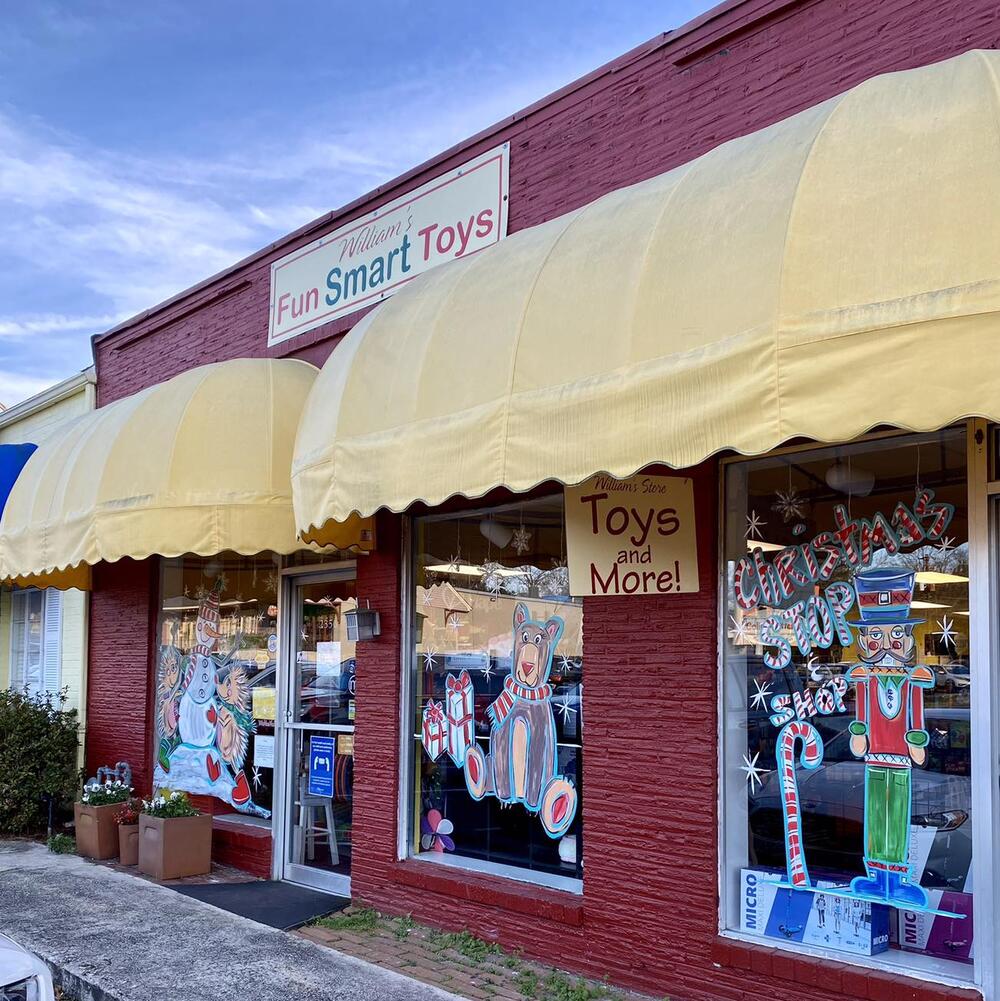
Section Branding
Header Content
Macon toy shop owner 'frustrated' over lack of clarity on tariffs
Primary Content
LISTEN: GPB's Peter Biello speaks with a small business owner in Macon about how she's planning for the uncertain future created by tariffs.

President Donald Trump has delayed or reduced many of his most severe tariffs against America's trading partners, including China, but some import taxes remain in place. What also remains is the uncertainty for small businesses that import many of their products. William's Fun Smart Toys in Macon is one of those businesses. Shop owner Florence Allen spoke with GPB's Peter Biello about tariff uncertainty and changes to the way she does business.
TRANSCRIPT
Peter Biello: Broadly speaking, how do these tariffs and the back and forth on tariffs make you feel as a small business owner?
Florence Allen: The back and forth is frustrating from my perspective because it seems like that from one day to the next or one week to the next, it's hard to plan. And for me in in my industry and how my business cycle works on a yearly basis, I should be ordering for Christmas and I'm not. I'm kind of — I'm holding back. Even with this recent tariff decrease announcement, there's still a lot of uncertainty within that for the manufacturers that I order from.
Peter Biello: And how much of your inventory — how much of the things you sell — is imported?
Florence Allen: It's like 80% of the world's toys are made in China. They come out of China. But for me personally, in my store, I would say anywhere from 5 to 10% of the toys in my store are U.S.-made. The rest comes from either China or other sources in the world.
Peter Biello: When President Trump took office, he was not shy about saying tariffs were coming. What did you do to prepare for any potential tariffs?
Florence Allen: My gut feeling was something was going to happen that was gonna affect supply or my cost or both. And so I'm looking at my bigger vendors and I'm going on and selectively restocking in things that I sell all throughout the year. Like, babies are born all 12 months out of the year so I constantly have people that come in and want baby gifts.
Peter Biello: Seems like what you're saying is knowing the tariffs may come, you stocked up on select things that you knew you were going to need year-round.
Florence Allen: Yes, and really, you know, to carry me to the fall.
Peter Biello: Have you had to increase prices yet? Or do you see that happening in the future?
Florence Allen: I only increase prices when my costs go up. So I had some slight increases in January. I can think on one company that their item went from — and it was an impulse item — it went from $2.25 to $2.50. Well, I didn't raise the price in my store on that particular item. I just kind of ate it. Now, that same impulse item now has gone from $2.50 to $3. Well, when I get my new order in, I'm gonna have to raise the price of it, because at that point, it falls outside of what I need to charge. Because I have my overhead, I have the cost of my utilities, I have two employees I pay.
Peter Biello: What do you want consumers to understand about tariffs and how they affect small businesses like yours?
Florence Allen: I think consumers need to really understand that the tariffs really are going to affect their pocketbook. You know, that tariff that's being paid when a product hits our country, you know, the importer is going to pay the tariff and they're going to tack it on [...] if they send it to a distributor. You know I've got my big toy show coming up in June and I just still really don't know what I'm going to do. It may be just be a lot of looking this year and then really going back and seeing where, you know, "Do I really need to order this or not?"
Peter Biello: Florence Allen, thank you so much for speaking with me.
Florence Allen: Well, thank you so much for having me on and I hope — I hope this provides some insight for people out there.

